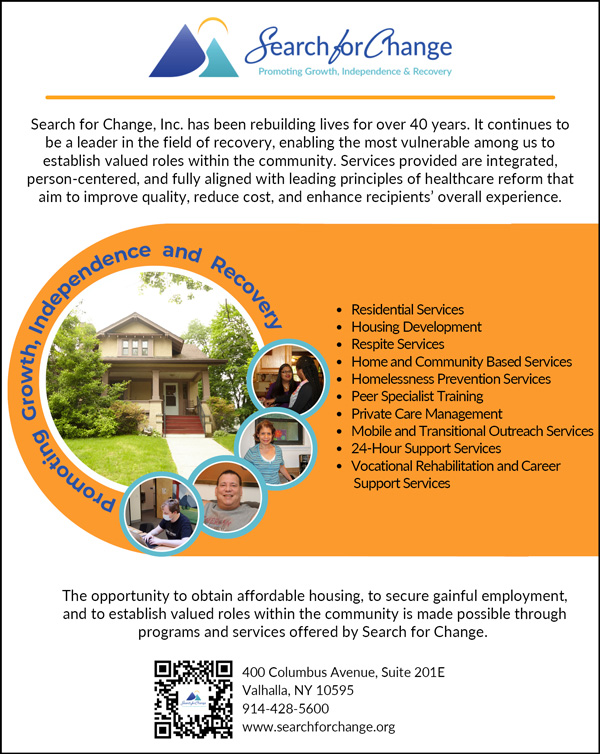An emerging crisis in maternal mental health may be attributed to innumerable causes, many of which have been implicated in other behavioral health crises. Recent epidemics of Suicidality and Substance Use Disorder are the most notable and tragic manifestations of human distress that attend the modern era, and the stressors of motherhood render many women uniquely susceptible to these conditions. Studies of maternal mental health and wellbeing have revealed significant declines in concert with sociopolitical upheaval, economic volatility, and the Coronavirus pandemic that have dominated the global landscape of the past decade. According to one investigation, 5% of mothers surveyed in 2016 described their mental health as “fair” or “poor.” By 2023, this percentage had increased to 8.3%. Only 4.5% of fathers surveyed in 2023 described their mental health in such terms, suggesting mothers bear a disproportionate share of stress related to child rearing, as affirmed by countless studies and widely accepted anecdotal evidence (Pearson, 2025). To balance the demands of employment, motherhood, and countless other responsibilities modern life levies upon women requires exceptional fortitude, even under relatively favorable conditions. For many women, however, conditions for childrearing are decidedly unfavorable. R.D. Laing’s depiction of insanity as a sane response to an insane world is perhaps the most apt explanation for the decline in maternal mental health. It also contains a clue to potential correctives that would ameliorate the suffering of women who elect to pursue motherhood and all the joys and challenges it entails.

The U.S. offers a paltry package of publicly funded support services for parents in comparison to other industrialized nations. It ranks 33rd out of the 38 member nations of the Organization for Economic Cooperation and Development (OECD) in spending on childcare and early childhood education, and its parental workplace leave policies are similarly parsimonious (Organization for Economic Cooperation and Development, 2023). Although the Family and Medical Leave Act (FMLA) guarantees parents unpaid leave following the birth of a child and related events, many parents cannot afford to go unpaid, nor can they adapt to the seismic lifestyle changes that accompany the birth or adoption of a child within the 12-week period stipulated in the FMLA. Furthermore, women who manage to balance the competing demands of work and parenthood receive less compensation than their male counterparts and do not enjoy financial returns commensurate with their efforts. Women earn 16% less than men by some estimates, and this economic inequity is demoralizing to many women and compounds the financial stress of parenthood, particularly in the absence of a robust publicly funded safety net (Institute for Women’s Policy Research, 2024).
European and other industrialized nations generally offer extensive parental support benefits relative to the U.S., and these benefits are not limited to parents or to employees with caregiving responsibilities. Women in the United Kingdom are statutorily entitled to 52 weeks of leave from their employment following the birth of a child, and their counterparts in Estonia and Croatia enjoy even more generous offerings at 68 and 52 weeks, respectively (Engage Employee, 2025). Other nations’ paternity leave policies are similarly progressive and yield proven benefits for fathers and mothers alike. A study of Swedish households revealed a statistically significant correlation between paternity leave and maternal mental health during the first six months of parenthood. It revealed a 14 percent decrease in the likelihood of a mother having an inpatient or specialist outpatient visit for complications related to childbirth and a 26 percent decrease in the likelihood a mother would require anxiolytic medication when their male partners availed themselves of paternity leave policies that enabled them to assume a larger share of childcare responsibilities than would be possible in the absence of these policies (Khan, 2020). Another study of Israeli households revealed a positive relationship between paternity leave and maternal sleep hygiene. This study examined 57 families in which fathers of newborns assumed childcare duties that would otherwise devolve to mothers, presumably as a result of paternal leave policies that permitted greater paternal engagement. Mothers who participated in this study experienced improved sleep hygiene relative to control group participants (Tikotzky et al., 2015). Insofar as sleep hygiene is both predictive of and highly correlated with an array of behavioral health conditions, the salutary emotional and psychological effects of improved sleep are axiomatic.
To segregate the psychological and physical effects of motherhood is to entertain a false dichotomy that has persisted since René Descartes advanced a dualistic view of the human condition several centuries ago. Recent advances in biology, psychology, and related fields of scientific inquiry have largely discredited the concept of dualism, and this is similarly evident in studies of maternal health and mortality. Simply put, maternal mortality rates are correlated with other indicators of maternal health and well-being and are similarly influenced by public policy. The U.S. ranks 55th in the world in maternal mortality, the lowest of any developed nation (World Health Organization, 2023). The state of maternal health and mortality among Black, American Indian, and Alaskan women is particularly dire. Maternal mortality among American Indian and Alaskan women is double that of white, non-Hispanic women, and Black women are three times more likely than white, non-Hispanic women to die of obstetric-related causes or within one year of the end of their pregnancy (Peterson et al., 2019). Such racial disparities are widely attributed to enduring inequities in access to healthcare and social determinants of health among women of diverse racial and socioeconomic status.
Improvements in maternal health and longevity require a reevaluation of public policies that address mothers’ economic and social welfare and the countless factors that perpetuate health disparities among women of diverse racial and ethnic backgrounds. The benefits of affordable childcare, ample paid leave, primary and behavioral healthcare services, and quality health insurance are not limited to mothers. They promote the healthy development of children and familial stability. Initiatives that address the Health-Related Social Needs of vulnerable individuals and correct inequities in health outcomes offer considerable promise, provided they do not perish at the hands of policymakers and elected officials on whom they depend.
Ashley Brody is Chief Executive Officer of Search for Change, Inc. The author may be reached at (914) 428-5600 (x9228) or abrody@searchforchange.org.
References
Engage Employee. (2025, February 23). Revealed: The best and worst countries for employed new parents. Engage Employee.https://www.engageemployee.com/blog/revealed-the-best-and-worst-countries-for-employed-new-parents
Institute For Women’s Policy Research. (2024, March 7). New report: Women earn less than men in all occupations, even ones commonly held by women. https://iwpr.org/new-report-women-earn-less-than-men-in-all-occupations-even-ones-commonly-held-by-women/
Khan, M. S. (2020). Paid family leave and children health outcomes in OECD countries. Children and Youth Services Review, 116. https://doi.org/10.1016/j.childyouth.2020.105259
Organization for Economic Cooperation and Development (2023). OECD family database. https://www.oecd.org/content/dam/oecd/en/data/datasets/family-database/pf3_1_public_spending_on_childcare_and_early_education.pdf
Pearson, C. (2025, May 27). Study finds a steep drop in mothers’ mental health. The New York Times.
Petersen, E.E., Davis, N.L., Goodman, D., Cox, S., Syverson, C., Seed, K., S-M., C., Callaghan, W.M., & Barfield, W. (2019). Racial/ethnic disparities in pregnancy-related deaths — United States, 2007–2016. Morbidity and Mortality Weekly Report (MMWR), 68(35), 762-765. https://www.cdc.gov/mmwr/volumes/68/wr/mm6835a3.htm
Tikotzky L., Sadeh A., Volkovich E., Manber R., Meiri G., & Shahar G. (2015). Infant sleep development from 3 to 6 months postpartum: Links with maternal sleep and paternal involvement. Monographs of the Society for Research in Child Development, 80(1), 107–124. https://doi.org/10.1111/mono.12147
World Health Organization. (2023). Trends in maternal mortality 2000 to 2020. https://iris.who.int/bitstream/handle/10665/366225/9789240068759-eng.pdf?sequence=1





